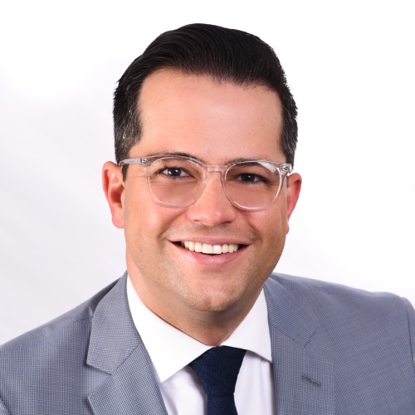When you create a Living Trust, you’re the one in control as the Trustee. But, if you become unable to manage it, a Successor Trustee (often a spouse or child) steps in, often with little to no experience. Imagine it as passing the reins of a family business to someone unfamiliar with its operations, especially in critical situations. Your Trustee might end up making significant mistakes, even while you’re alive and reliant on the trust due to illness or disability.
In this article, we’ll outline the 10 common errors we’ve observed California Trustees make. By being aware of these pitfalls, you can help prevent your Trustee from making these mistakes. Feel free to share this article with your Successor Trustee and others who have a Living Trust to keep them informed.
Lack of Understanding:
One of the fundamental mistakes California Trustees make is needing to fully understand their roles and responsibilities. Trustees must comprehend the trust document, the wishes of the trust creator, and the legal obligations associated with their position. One of the fundamental mistakes California Trustees make is needing to fully understand their roles and responsibilities as Trustee. Trustees must comprehend the Trust documents and any other estate planning documents, the intent and wishes of the Settlor, and the legal obligations associated with their position as Trustee. The Trustee should also examine the Trust documents for any unclear or ambiguous provisions that may require interpretation or clarification by court order.
Collecting Asset Information:
The key to a successful Trust administration is timely collecting all of the assets. A California Trustee should determine the nature, extent, and title of the Settlor’s assets as soon as possible so that the Trustee can recognize at an early stage in the administration whether there are potential uncertainties.
Assets generally fall into one of the following three categories: (1) assets in the Trust; (2) assets not in the Trust that pass outside of probate; and (3) assets not in the Trust that require probate or summary administration. Although the Trustee generally has no legal authority to deal with assets outside of the Trust, it is likely that the same individual appointed as the Trustee would also be appointed as the Executor of the Settlor’s Will, i.e., in that instance, the Trustee would have an obligation under the terms of the Will. Because of this, it is extremely important that the Trustee review and analyze all assets to determine whether the Trustee has an obligation to deal with additional assets.
Failure to Communicate:
Effective communication with beneficiaries is essential. Trustees should keep beneficiaries informed about the Trust’s administration progress, decisions, and any changes in a transparent and timely manner. Misunderstandings and disputes generally are the result of miscommunication between the Trustee and the beneficiaries.
Neglecting Record Keeping:
Proper documentation is vital during Trust administration. California Trustees should maintain detailed records of all transactions, communications, and decisions related to the administration of the Trust. Remembering record-keeping can create clarity and avoid legal complications and disputes being made by the beneficiaries.
As a California Trustee, it is important that the Trustee understand and appreciate that the scope of a beneficiary’s right to inspect the Trust records remains unclear. Although the courts have held that a beneficiary is entitled to inspect records of the Trust relating to the facts of a case, it remains uncertain whether a beneficiary is entitled to copy the Trust’s records, and who is obligated to pay for any copying expenses.
Mismanagement of Investments:
California Trustees have the crucial task of handling the investment of Trust assets as a reasonably prudent investor. Making unwise investment choices, neglecting diversification, or ignoring market shifts can result in financial setbacks, losses, and liability on behalf of the Trustee. California Trustees should seek professional advice when managing investments.
Ignoring Tax Obligations:
California Trustees must fulfill tax obligations on behalf of the Trust. This includes filing tax returns, paying taxes owed, and understanding the tax implications of Trust distributions. Failing to recognize tax responsibilities can result in losses to the Trust and liability on behalf of the Trustee. California Trustees should seek professional advice from a Certified Public Accountant (CPA) before making any anticipated tax decisions and filings related to the Trust.
Conflict of Interest:
California Trustees must act in the best interests of the Trust and its beneficiaries. Engaging in transactions that benefit the Trustee personally or conflict with the legal duties of the Trustee, may constitute a conflict of interest. A conflict of interest is a severe breach of Trust and disputes may arise leading to personal liability of the Trustee. For example, if the Trustee (irrespective of whether the Trustee is also a beneficiary) wishes to purchase an asset owned by the Trustee, it may be necessary to file a petition with the court requesting instructions or to obtain consent of all of the beneficiaries.
Failure to Seek Professional Help:
Complex legal and financial matters often arise during Trust and Estate administration. California Trustees should seek professional advice from Trust and Estate Administration Attorneys, accountants, or financial advisors to navigate these complexities and make informed decisions. Most Successor Trustees require professional help to carry out their fiduciary responsibilities (which often comes as a shock to the Successor Trustee and the beneficiaries). Even if a fully funded Living Trust is in place, Trust administration requires structure and formality which legal and accounting fees naturally accompany or follow. As such, it is prudent for a California Trustee to seek professional advice throughout the administration of the Trust. This will also absolve the Trustee of personal liability for losses incurred as a result of the decisions.
Distributing Assets Prematurely:
Distributing Trust assets before settling debts, taxes, and other obligations is a common mistake. Premature distribution can lead to insolvency, leaving insufficient funds to fulfill the trust’s obligations, and depending on the premature actions taken by the Trustee and the damage associated, could also result in the Trustee being personally liable for any damages to the Trust.
Procrastination and Delay:
Trust administration requires timely action. Delays in making decisions, distributing assets, or resolving disputes can prolong the process and create frustration among beneficiaries. California Trustees should anticipate and proactively address issues as they arise.
OC Trial Group: Your Trusted Partner in California Trust and Estate Administration

Navigating the complexities of Trust and Estate Administration requires not only knowledge and expertise but also a reliable legal partner who can guide California Trustees through the process of trust administration. In this realm, OC Trial Group stands out as a beacon of trust and expertise, offering invaluable assistance to Trustees to mitigate the common mistakes that often are made by Trustees during Trust administration.
Expertise and Experience:
With a team of highly skilled and renowned trust and administration attorneys, OC Trial Group boasts a deep understanding of trust laws, financial intricacies, and the nuances of estate planning. Their expertise equips them to provide trustees with comprehensive guidance, ensuring that every decision made insulates the Trustee, is in the best interests of the beneficiaries, and mitigates the likelihood of a dispute relating to the administration of the Trust.
Personalized Guidance:
OC Trial Group recognizes that every Trust administration process is unique, with its own set of challenges and requirements. Their attorneys take a personalized approach, tailoring their advice and strategies to suit the specific needs of each Trustee and the Trust in question. This individualized attention ensures that trustees receive relevant, actionable insights to make informed decisions which protect the Trustee, the beneficiaries, and the Trust.
Transparent Communication:
Effective communication is at the core of OC Trial Group’s approach. They prioritize transparent and open dialogue with Trustees, ensuring that all queries by the Trustees and/or the beneficiaries are addressed promptly and comprehensively. By fostering a strong line of communication, trustees can navigate the complexities of trust administration with confidence, knowing that they are supported every step of the way.
Proactive Problem-Solving:
OC Trial Group adopts a proactive stance when it comes to problem-solving. Using their knowledge and experience as litigation attorneys, they anticipate potential challenges that Trustees might face during the Trust administration process and devise strategies to mitigate risks effectively. By staying ahead of issues, they enable trustees to handle any unforeseen circumstances with resilience and precision.
Comprehensive Legal Support:
From legal documentation and financial matters to dispute resolution and tax obligations, OC Trial Group offers comprehensive legal support to Trustees. Their multifaceted approach ensures that Trustees are well-equipped to handle all aspects of trust administration, leaving no room for errors or oversights. Moreover, their proven track record supports their ability to help trustees in defense against breach of fiduciary duty actions or removal and surcharge actions if required.
Conclusion:
Trust administration is a complex and multifaceted task that requires careful attention to detail, effective communication, and adherence to legal obligations. By avoiding these common mistakes, Trustees can fulfill their responsibilities and duties, ensuring a smooth and successful Trust administration process that honors the intentions of the Settlor and benefits the beneficiaries. Seeking professional guidance when needed and staying organized are key strategies in navigating the challenges of Trust administration effectively.
When it comes to Trust administration, having a trustworthy and experienced legal partner like OC Trial Group can make all the difference. By choosing OC Trial Group as your reliable Trust and administration attorneys, you gain a steadfast ally dedicated to preventing common mistakes and guiding you through the process seamlessly. With their support, Trustees can fulfill their duties diligently, preserving the integrity of the trust and safeguarding the interests of the beneficiaries.
Ready to navigate the complexities of Trust administration with confidence? Consult OC Trial Group, your trusted legal partners, and ensure a seamless process for you and your beneficiaries. Contact us today at (949) 270-3424 for expert guidance.
The post Avoiding Common Pitfalls: Top 10 Mistakes Made by California Trustees During Trust Administration appeared first on OC Trial Group.

